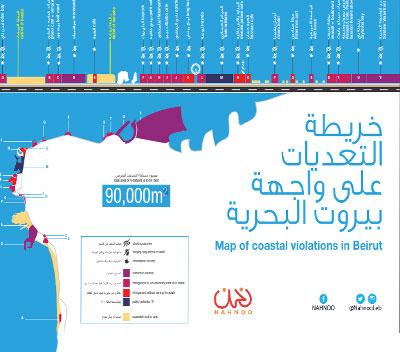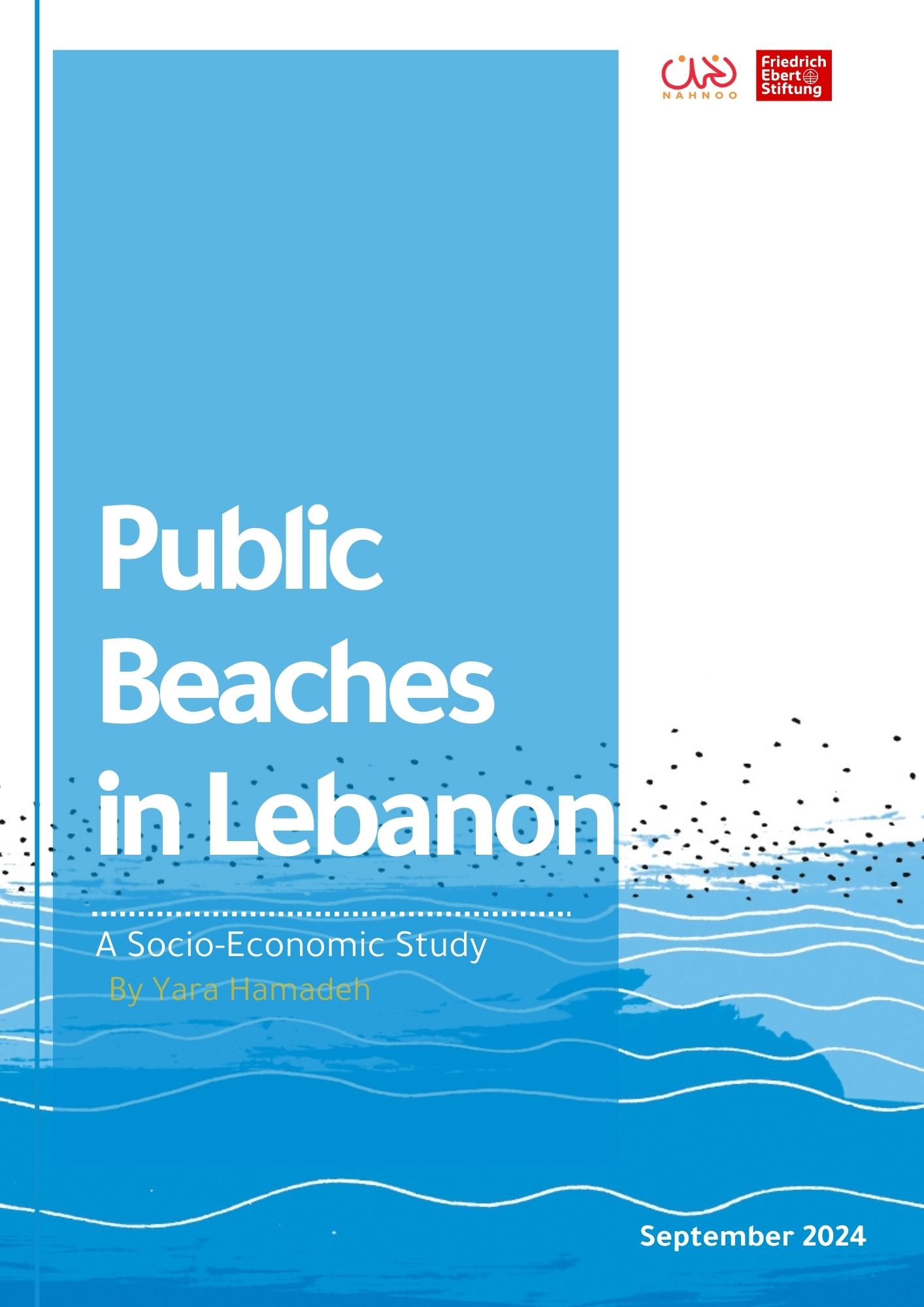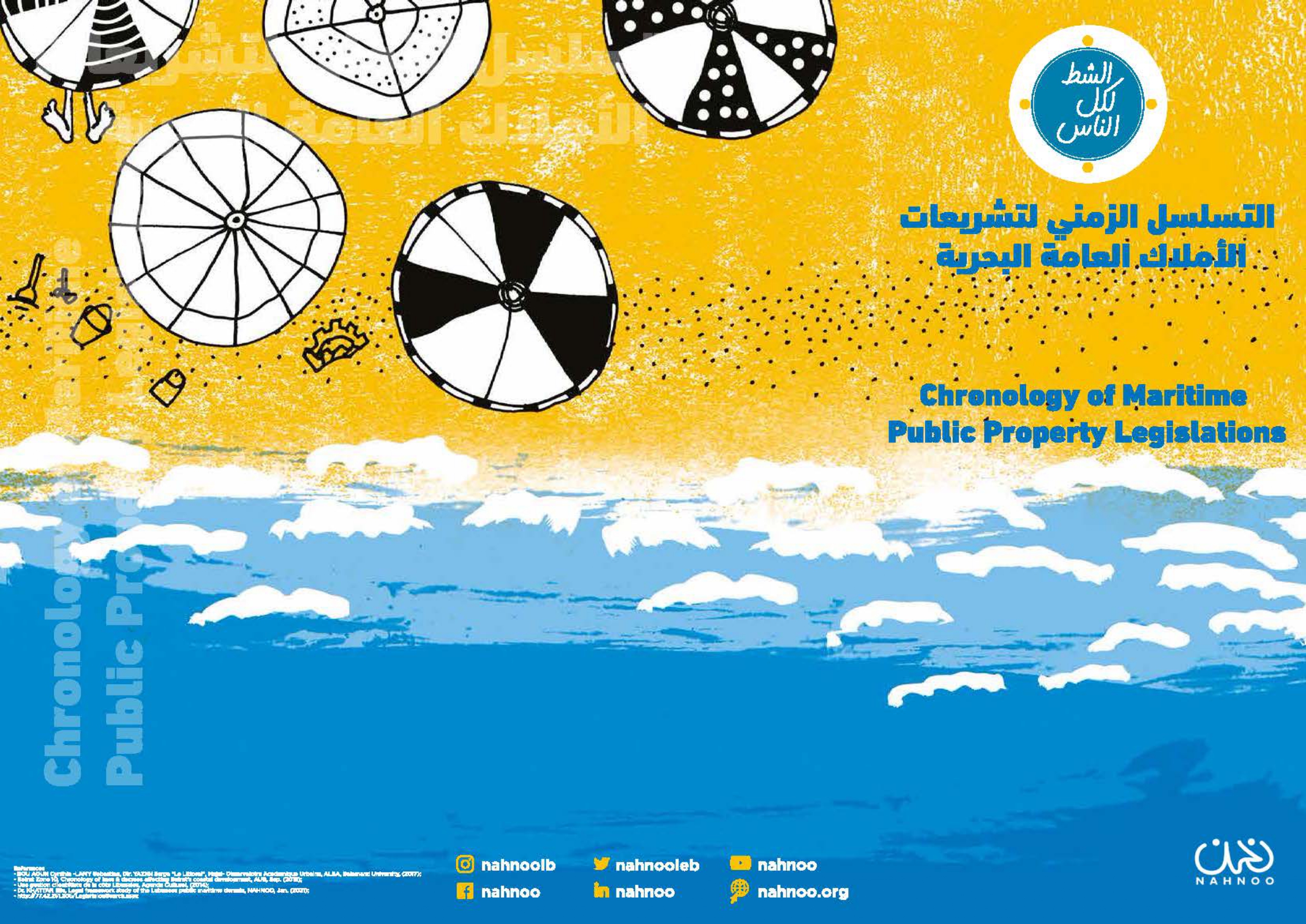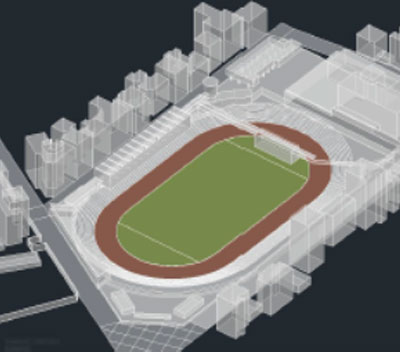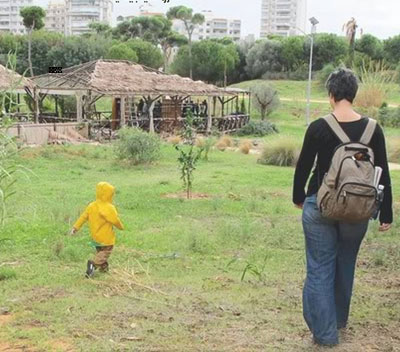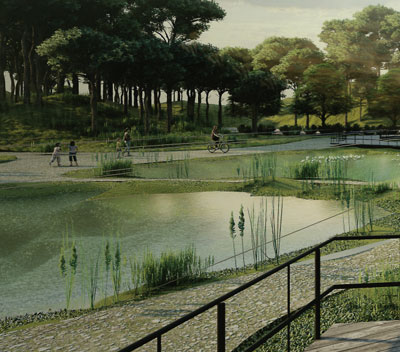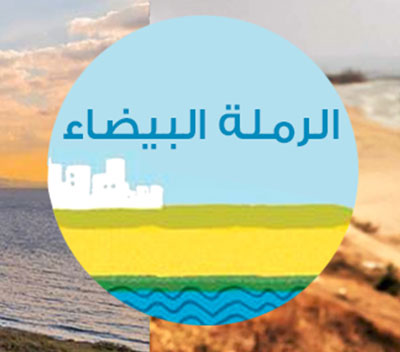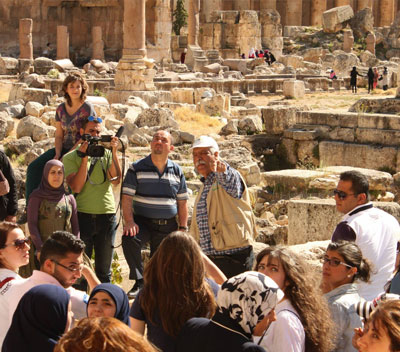Map of coastal violations in Beirut
Map of Coastal Violations in Beirut
Map of violations along the coast of Beirut.
The Lebanese Beach Socio-Economic Study
The Lebanese Beach Socio-Economic Study
This study examines factors influencing public vs. private beach preferences, including the 2019 economic crisis. It highlights improving public beaches to balance resource preservation and community well-being.
Chronology of Maritime Public Property Legislation
Chronology of Maritime Public Property Legislation
Strategy for the preservation of Beirut Municipal Stadium
Strategy for the preservation of Beirut Municipal Stadium
A legal reading of the concept of public squares in Lebanon
A legal reading of the concept of public squares in Lebanon
An initiative to define the legal framework that governs the concept of “public square” in Lebanese legislation, in order to develop and crystallize practical strategies and recommendations that keep pace with its activities and fortify it in its movements and initiatives vis-à-vis official institutions and decision-makers in this field.
Horsh Beirut-Harnessing Ecology and Infrastructure
Horch Beirut-Harnessing Ecology and Infrastructure
In 2020, the re-imagination of Horsh Beirut is one that is responsive to the myriad of challenges that the
city of Beirut faces today. In the process of compiling this project, Beirut underwent a revolution, a global pandemic, an economic recession, as well as an unimaginable explosion that destroyed half of the city. In the re-imagination of Horsh Beirut today, questions on resilience, climatic resilience, social equality, and emergency response are inevitable. We envision Horsh Beirut as an essential infrastructure to the city. We imagine Horsh Beirut (Pine Forest and Hippodrome) as growing beyond its fences and expanding into the neighborhoods as the Horsh Beirut Biosphere- a regenerative network that harnesses ecology as well as social, hydrological, and urban infrastructure.
Project Credits
Elie Saad (Nahnoo, project coordinator)
Dima Rachid (project lead)
Leah Moukarzel (project lead)
Project Team
Aziz Barbar
Caline El Khoury
Christelle Nakhoul
Edmond-Mickel Rahmeh
Esmeralda Massaad
Ramy Abi Antoun
Rita Salameh
Victorio Boudiwan
Partner
Bayda Ramletna
Bayda Ramletna
The campaign aims at rehabilitating the beach of Ramlet Al-Bayda in Beirut so that it is functional and attractive to all people again.
The beach of Ramlet Al-Bayda, which constitutes less than10% of the length of Beirut’s seashore, is the only remaining ‘public’ sand beach in Beirut. However it is unsafe, polluted, and most of the land has become private property!
Our Garden is our Image
Our Garden is our Image
Tyre’s public park … the city’s anticipated green paradise. “Jnainetna, Souretna” represents the future vision for the currently neglected garden, despite its essence as a fundamental need for the residents of the area and the neighborhood. Also, as a focal point to the city, the park is the refuge of those escaping the city’s noise and pollution.
It remains our garden, the garden for all the people, welcoming all kinds of diversity among people and nurturing their needs.
It’s ours, our public property and constitutional right. Thus, protecting and claiming it is our responsibility and a priority to strengthen our sense of belonging to the city. A reflection of the city, the park is the proof of the city’s beauty and richness.
Coast for All
Coast for All
Lebanon has a unique identity closely linked to the sea, as it is located on the Eastern coast of the Mediterranean Sea along a 220-kilometer coastal stretch. This identity has been reflected in various cultural, social and economic practices that shaped civilizations and coastal cities throughout the centuries. But the Lebanese coastline has witnessed several encroachments that changed its features, obstructed its continuity, and limited accessibility.
So, inhabitants of Lebanese coastal cities have often lost their connection to the sea. With the beginning of the civil war and the weakness of the Lebanese state, many influential individuals and groups encroached on large parts of the coast. The encroachments remained even after the ceasefire, and they took several forms, some of them were “regularized occupations” protected through decrees issued by the government. In reality, regularized occupation decrees are issued and implemented without conforming to the legal mandate or the signed international agreements. Some of the encroachments were considered violations awaiting removal.
RAS EL AIN – BAALBECK PROJECT
Ras el Ain-Baalbeck Project
A common project between two national nongovernmental organizations (NGOs), members of the national network of Anna Lindh Foundation: the Ibrahim AbdEl Al Foundation for sustainable development and the NAHNOO Association. This project was implemented under the theme 1 entitled “Right for clean water for all”.
The project aims at tackling the problems and challenges facing the water resource of Ras el Ain – Baalbeck. It is a pilot project that is stressing on the participatory approach concept, involving stakeholders (SHs) in identifying problems and developing solutions concerning the water issues in their region, and that are affecting their everyday life.
Partner


